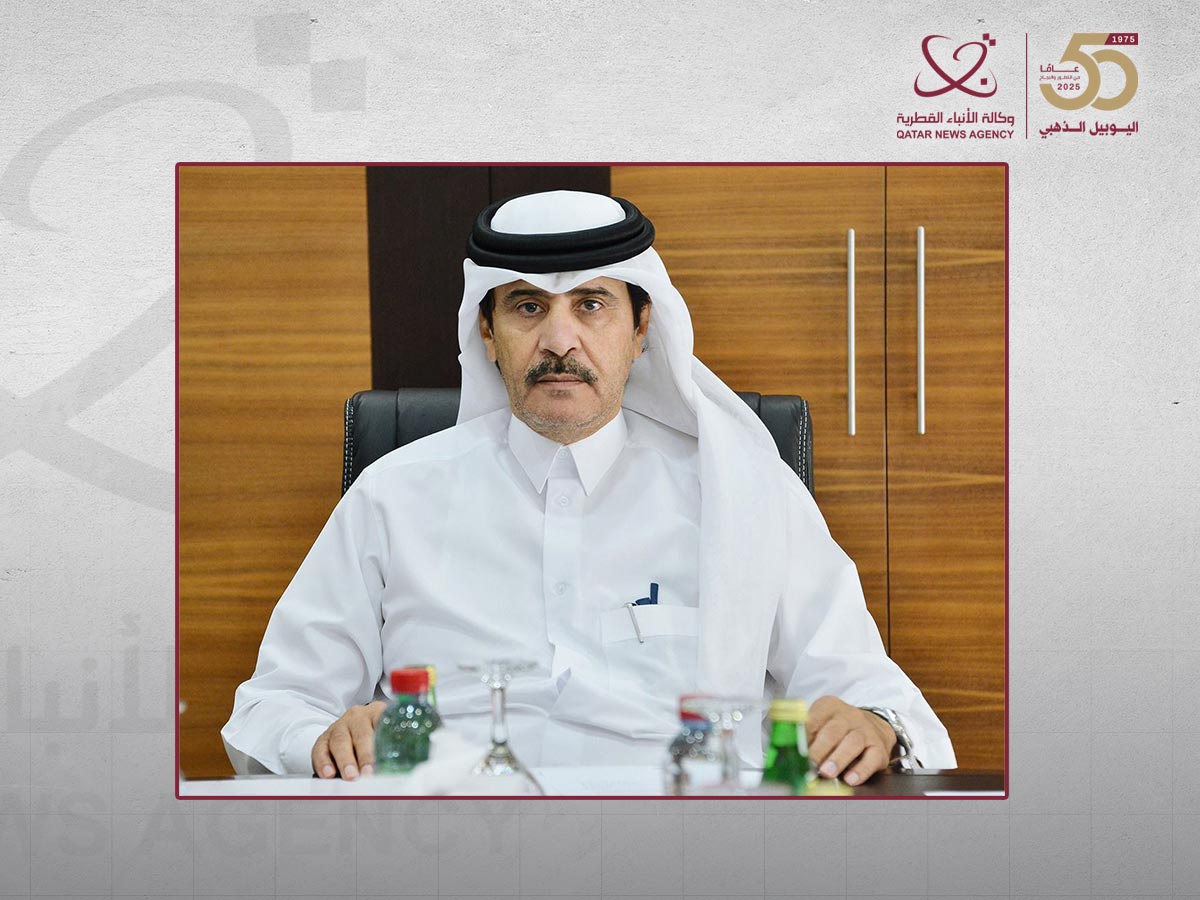By Ras Laffan
Copyright qna

Doha, September 29 (QNA) – The State of Qatar has boosted its public-private partnership (PPP) model to support economic diversification, in line with its National Vision 2030.
Over recent years, the country has developed a robust institutional framework that encourages investment and improves public service delivery.
At the heart of the nation’s PPP strategy is Law No. 12 of 2020, which regulates cooperation between public institutions and private sector entities.
The Ministry of Commerce and Industry has also established a dedicated PPP Unit tasked with evaluating projects, conducting feasibility studies, modeling contracts, and ensuring fair competition.
To increase transparency and investor access, the Ministry launched an electronic platform that displays available state projects.
In addition, institutions such as the Qatar Financial Centre (QFC) and the Qatar International Court have contributed to creating a secure legal and investment environment, streamlining processes and providing a specialized judicial framework for commercial disputes.
Qatar’s PPP approach has enabled greater private sector involvement in long-term projects related to financing, operations, and maintenance. Most agreements are performance-based, with project assets returning to the state upon completion of the contract term.
This institutionalized model has helped build an attractive business environment, raise investor confidence, and accelerate diversification beyond oil and gas.
PPPs are now seen as key implementation tools—not only for infrastructure development and financial gap bridging, but also for advancing technology transfer, skills development, and localizing knowledge.
Speaking to Qatar News Agency (QNA), Second Vice-Chairman of the Qatar Chamber, Rashid bin Hamad Al Athba, described Qatar’s PPP experience as highly successful.
He said the model enables the private sector to play a vital role in delivering strategic national projects and achieving the objectives of Vision 2030.
Al Athba highlighted the Qatari private sector’s progress across various fields—such as education, healthcare, infrastructure, food security, renewable energy, and tourism—stating that it is well-positioned to participate in future government-led initiatives.
He affirmed the Qatar Chamber’s full support for the national PPP strategy, noting its efforts to promote related opportunities and initiatives. Through its sector-specific committees, the Chamber continues to address challenges and recommend improvements to implementation mechanisms.
Al Athba also underscored the mutual benefits of PPPs, including risk-sharing, efficient public spending, access to specialized expertise, and enhanced innovation and competition.
He emphasized that the model encourages both domestic and foreign investment, improves Qatar’s appeal as an investment destination, and opens new opportunities for small and medium-sized enterprises (SMEs) to expand and integrate into local and global supply chains.
He concluded by praising the government’s commitment to fostering a supportive legal and regulatory environment for PPPs, citing Law No. 12 of 2020 and other ongoing ministerial and institutional initiatives that continue to reinforce investor trust.
Financial and economic expert, Dr. Hashim Al Sayed, emphasized that the State of Qatar is keen to encourage the private sector and create opportunities for it as a key partner in sustainable development.
In his remarks to QNA, Dr. Al Sayed noted that the private sector proven itself responsible, leveraging Qatar’s economic growth to achieve higher profits while genuinely supporting implementation of major projects and advancement of essential services that provide prosperity to citizens and enhance Qatar’s economic standing.
He highlighted that Law No. 12 of 2020, regulating public-private partnerships (PPPs), provides a supportive legislative environment for such partnerships.
The law also establishes a framework to attract foreign and local investments for innovative projects across various fields. It aims to strengthen collaboration between the public and private sectors, encourage competition and innovation, diversify and distribute risks, enhance governance, optimize public spending, create added value for projects, and improve access to financing.
Dr. Al Sayed added that the results of these efforts can be observed in numerous successful projects executed under the PPP model, including infrastructure, education, healthcare, sports, food security, and logistics zones.
He also stressed that partnerships bring multiple benefits to the government sector, such as leveraging private sector expertise and technical knowledge, transferring these capabilities to the public sector, enhancing market competition, increasing productivity, improving service quality, creating job opportunities, and boosting Qatar’s performance in international economic indicators, particularly the Ease of Doing Business report.
These factors collectively attract foreign investment and strengthen Qatar’s position as an ideal investment destination.
Referring to the 2024 Investment Promotion Agency report, he noted that Qatar witnessed significant economic growth last year, alongside strategic policy reforms and enhanced investor confidence. Foreign direct investment reached $2.74 billion through 241 new projects, generating 9,348 job opportunities.
Dr. Al Sayed called for careful project selection, considering technical and economic feasibility, signing competitive and transparent contracts at all stages, and implementing strong oversight and risk analysis to maximize the benefits of such partnerships.
He emphasized that partnerships rely not only on laws and regulations but also require governance, transparency, disclosure, accountability, and clear responsibility to ensure efficiency and competitiveness – principles Qatar fully upholds.
On the ground, tangible achievements reflect the effectiveness of public-private partnerships. In infrastructure and services, leading projects include the Mesaieed Waste-to-Energy Facility, designed to process approximately 960,000 tons of solid waste annually into electricity.
The Public Works Authority (Ashghal) is also advancing projects for the private sector, including government buildings and wastewater treatment plants, reflecting a gradual approach to expanding participation according to sector needs.
In healthcare, the PPP approach supports projects enhancing service quality, such as integrated worker care and dialysis centers, distributing risks and responsibilities between sectors to ensure financial and operational sustainability.
In education, partnerships in building and operating schools ensure quality and sustainability while developing national capabilities aligned with labor market needs and increasing the knowledge share of GDP in line with Qatar National Vision 2030.
In innovation, partnerships act as a driver for knowledge economy through collaborations with global companies to accelerate renewable energy projects, smart cities, and pioneering urban experiments in Lusail and Msheireb Downtown Doha, integrating clean technologies with AI and IoT to optimize energy, transport, and service management.
In renewable energy, the 800 MW Kharasaah Solar Power Plant has become operational, complemented by Ras Laffan and Mesaieed plants adding 875 MW.
The planned Dukhan plant, with a capacity of 2,000 MW, will bring total solar capacity to around 4,000 MW by 2030, reducing emissions by approximately 4.7 million tons annually.
The market environment benefits from strong policy signals, including government procurement in health, public works, and energy sectors totaling around QAR 70 billion, non-oil private sector exports of QAR 4 billion over five years, and 2025 general budget of QAR 210 billion driving development spending.
Regarding economic diversification, partnerships increase the contribution of non-hydrocarbon sectors. Expanding clean energy initiatives stimulates research and development, software solutions, and logistics services, while Ashghal’s infrastructure projects boost local supply chains from construction materials to facility management, broadening economic activity and involving entrepreneurs and local suppliers.
The Ministry of Finance supports this approach through the Localization program, enhancing local content, offering 10% price advantage for local products, and implementing other measures that encourage local manufacturing and link development to real economy. (QNA)



